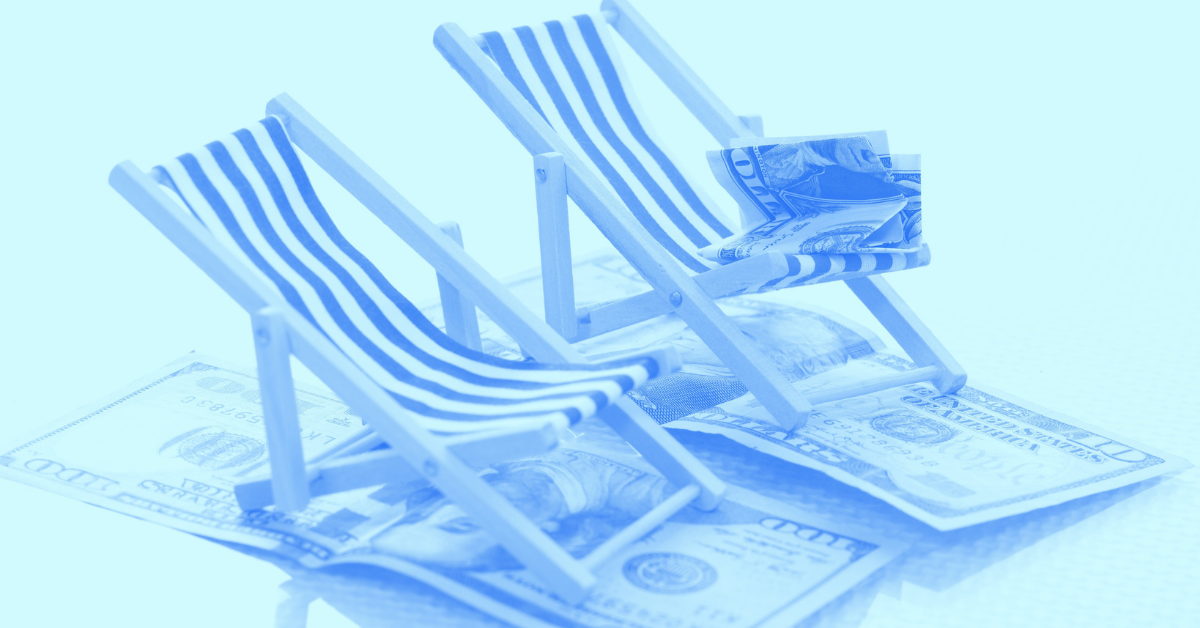These Related Stories
How to Stop Living Paycheck to Paycheck
Share this

A recent poll conducted by Bankrate asked respondents if they could pay cash for a major expense such as a $500 car repair or a $1,000 trip to the emergency room. 62% replied "no."
It seems most Americans are merely living paycheck to paycheck.
There are many reasons why people get stuck in this cycle. Even if a person brings home a good salary, that doesn’t mean they are able to save anything. Just going to work piles on more expenses. According to the Federal Highway Administration, households in spread out cities like Los Angeles spend 25% of their salary on transportation costs.
That family may need to live in an expensive neighborhood if they want to save money on transportation. But this means housing costs rise. Many recent college graduates spend more than one-third of their salary in rent. And don’t forget how the jobs were acquired in the first place -- you need to be qualified, which often indicates a four-year degree (at least). Many people carry student loan debt as well.
Life, in other words, can be expensive.
But excuses don’t get a person anywhere, and if you want to stop living paycheck to paycheck you must take deliberate actions. It’s about having more than enough cash at the end of each 2-week period. It’s about building savings. Are you willing to put forth the effort?
Here's how to get started.
Create a ‘Bare Bones’ Budget
A bare bones budget is just like it sounds. It’s a budget for all your necessary spending to get by: things like rent, utilities, and groceries. Hulu Plus, Netflix, cable -- none of that is necessary. Keeping an apartment at 72 degrees all summer isn’t necessary either. Even consider downsizing your car, home, and so on in order to break the cycle of overspending.
A bare bones budget should reflect only what you need. It can be tough to eliminate all discretionary spending, especially when you're used to spending money on things that you want. But it's essential if you want to break the paycheck to paycheck cycle.
You’ll find there’s fat to be trimmed from your current spending levels. Challenge everything and cut back where you can.
Build an Emergency Fund
After your bare bones budget is in place, the idea is that you'll have excess income. Your next step is to open a savings account for emergencies.
(Note: The latest iPhone when yours that you got 6 months ago works perfectly fine is not an emergency; nor is a leather couch.)
No one can tell you the exact amount you need for an emergency fund. Some people are comfortable with just $1,000. Others prefer keeping 6 to 9 months’ worth of expenses. It depends on how stable your job is, how easily you could get another job, if you have multiple sources of income, how many people depend on you financially, and so on.
Do what feels best. If you really can’t decide, the general rule of thumb is 3 to 6 months' worth of net pay.
Stop Living Paycheck to Paycheck by Earning More Money!
Saving money is finite. There are only so many expenses you can cut. making money is infinite.
This step is about bringing home more bacon. This is a powerful step. Just implementing one of these suggestions can change your life. Extra income can be earned in a variety of ways:
- Ask for a raise
- Switch jobs in the same industry
- Begin working in a more lucrative industry
- Find side jobs
- Work on creating passive income (which leads to upper echelon of financial success)
Pay Down Debt or Invest in Equities
At this point in the paycheck to paycheck lifestyle destruction process, you’ll be bringing home quite a bit of cash. It’s time to stop paying minimum amounts on your loans. Stare them right in the eye and pay them off quickly! It’s fun and motivating. Each payment is pushing you further than further from the debt trap.
If you don’t have any high-interest debt, you can consider investing your excess money. The theory here is that investing in the stock market will yield a greater return than your debt takes away.
Historically speaking, the stock market has had an average return of 10%. Many student loans charge less than 5% per year on interest. This means paying the minimum on your debt and investing the rest of your available money could make more sense financially.
Never Return to the Paycheck to Paycheck Lifestyle
By reading this guide, you now know what it takes to get ahead. It is challenging. It takes hard work and self-discipline. But it’s possible. And after you master the art of saving, come back to this site for information about reaching financial independence! Good luck!
About the Author: Will Lipovsky is a blogger, freelance writer, and webmaster. Feel free to contact Will at First Quarter Finance.
Share this
- Good Financial Reads (924)
- Financial Education & Resources (892)
- Lifestyle, Family, & Personal Finance (865)
- Market Trends (114)
- Investment Management (109)
- Bookkeeping (55)
- Employee Engagement (32)
- Business Development (31)
- Entrepreneurship (29)
- Financial Advisors (29)
- Client Services (17)
- Journey Makers (17)
- Fee-only advisor (12)
- Technology (8)
Subscribe by email
You May Also Like

Creating a Retirement Paycheck

Good Financial Reads: How to Avoid Paycheck Creep, 5 Steps to More Mindful Finances, and More

